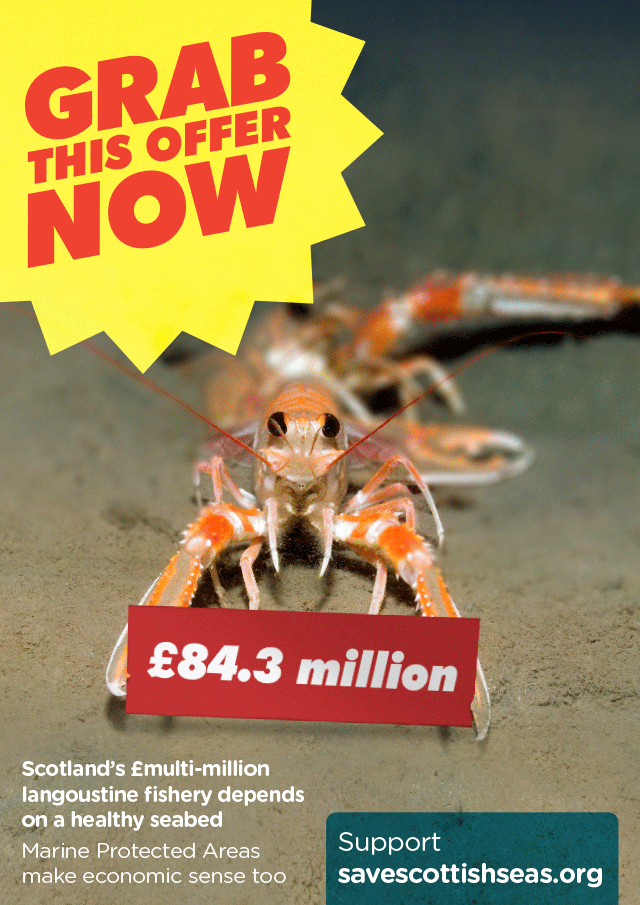 You’ll probably recognise this marine creature. It’s Nephrops norvegicus – known amongst many things as a Norwegian Lobster, prawn or langoustine. It lives in muddy seabeds around Scottish shores. It is also the second most commercially valuable species to the Scottish fishing fleet – in 2011 alone, landings totalled £84.3 million.
You’ll probably recognise this marine creature. It’s Nephrops norvegicus – known amongst many things as a Norwegian Lobster, prawn or langoustine. It lives in muddy seabeds around Scottish shores. It is also the second most commercially valuable species to the Scottish fishing fleet – in 2011 alone, landings totalled £84.3 million.
Healthy habitat is vital to this crustacean. ‘Burrowed mud’ might sound like the last place you’d expect to find an abundance of sealife, but in fact the soft sediments and muddy sands make a surprisingly important home for Scotland’s langoustines as well as a host of other creatures such as crabs, sea cucumbers and worms.
Unfortunately burrowed mud is listed internationally as a threatened or declining habitat which is why Marine Protected Areas are being proposed in Scottish waters – to protect and recover this habitat type and other important ‘priority’ habitats and species.
It is hoped that by protecting burrowed mud, the wider health of Scotland’s seas will benefit. Burrowed mud plays an incredibly important role in the whole marine ecosystem. The activities of the burrowing animals churn up the muddy seabed, allowing the exchange and cycling of oxygen, nutrients and minerals between the water and the sediment. This will benefit other marine life and the livelihoods which depend upon it. The habitat is not only home to Nephrops, it also provides rich feeding grounds for a variety of commercial fish species, including cod, haddock and whiting.
